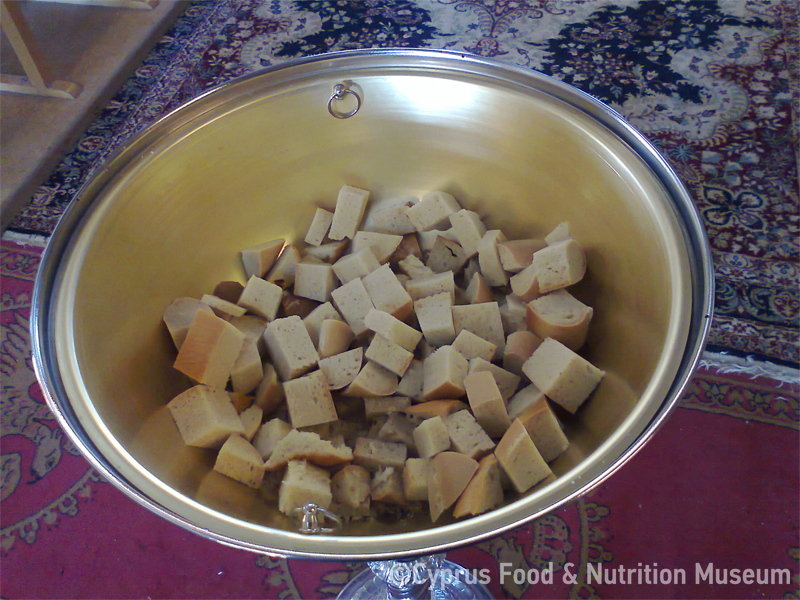Name - Origin
It is also known as the simple food, which is offered to those who have attended the funeral and have returned to the house of the deceased. The ancient funeral feast. This food consists of a small piece of bread together with halloumi or bread and olives (when fasting) and a portion of wine (pinniá). (Pharmakidou XP, 2003 p. 330), (Pharmakidou XP, 2003 p. 333)
In the villages of Acheritou and Pyrga in Famagusta district, the pariorká bread was kneaded at night. It was believed that the darkness that prevails at night is related to evil spirits, so the pariorká bread was kneaded at night (Defteraios AN., 1978).
Functional and symbolic role
Pariorka consisted of bread cut into small square pieces accompanied by halloumi and olives. This was given to the attendees to bless the dead, but also to forgive the soul of the deceased (Defteraios AN., 1978). In some villages such as Rizokarpaso, Komi tou Gialou and Lythragomi, prosforo was offered instead of bread (Kypri THD, Protopapa KA, 2003).
They are offered and consumed in the house of the deceased person to bless him. Pharmakidou XP (2003, p. 330) Nowadays, they are also offered/consumed when leaving the cemetery (Pharmakidou XP 2003, p. 333).
Additional information and bibliography
Pharmakidou XP (1983). Γλωσσάριον Ξενοφώντος Π. Φαρμακίδου, [Υλικά διά την σύνταξιν Ιστορικού Λεξικού της Κυπριακής Διαλέκτου, μέρος Β', έκδ. Θεοφανώς Δ. Κυπρή], Centre for Scientific Research, Nicosia, 2nd ed., 2003.
Defteraios AN. (1978) Ο άρτος κατά τη γέννησιν και την τελευτήν. National and Kapodistrian University of Athens. School of Philosophy - thesis, Athens.
Kypri Th. - Protopapa K. A. (2003), Παραδοσιακά ζυμώματα της Κύπρου. Publications of the Centre for Scientific Research, XVIII, Nicosia.
Stalo Lazarou, Demetra Dimitriou
